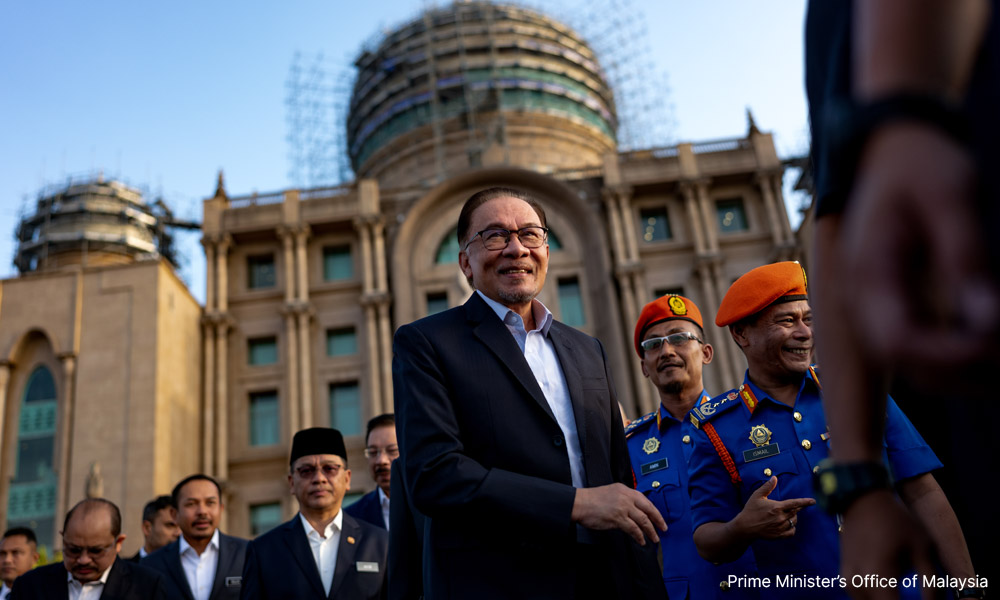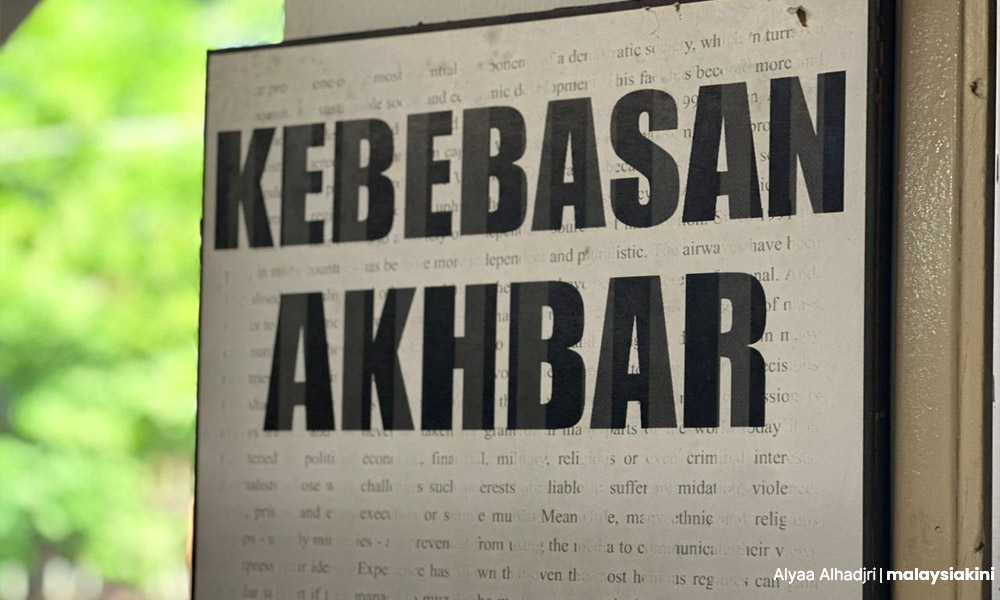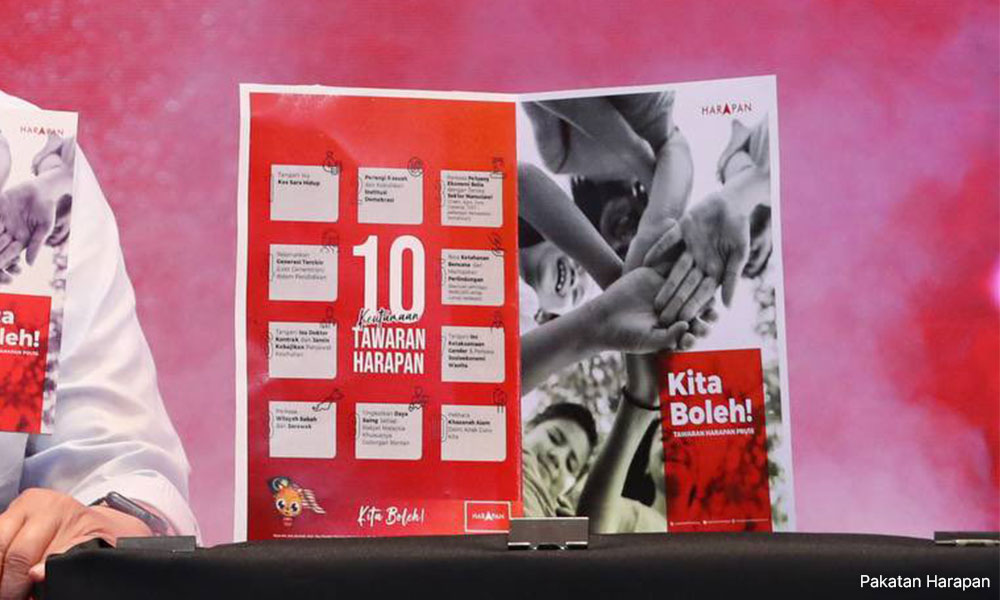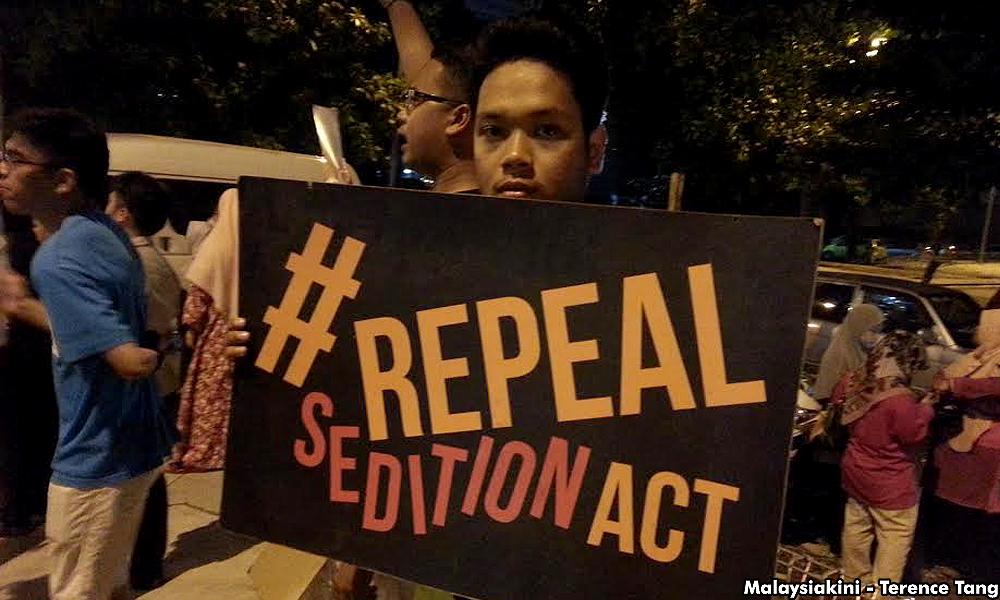On May 3, Reporters Without Borders (RSF) released the 2024 World Press Freedom Index, revealing a startling decline for Malaysia, which plummeted 34 places from its previous ranking to 107 out of 180 countries globally.
One should not be shocked by this result considering Malaysia’s consistent below-average performance in the World Press Freedom Index for the past 22 years from 2002 to 2024. Its worst ranking was 147 in 2014 and 2015 during the Najib Abdul Razak administration.
The only occasions when Malaysia ranked in the top 100 were during the Abdullah Ahmad Badawi administration in 2006, ranked 92, and during the Anwar Ibrahim administration in 2023, ranked 73.
Over the past five years, the country witnessed two notable leaps in the World Press Freedom Index. The first was in 2019 (during the Dr Mahathir Mohamad-led Pakatan Harapan administration), when Malaysia led the index for Southeast Asia with a rank of 123, marking a substantial leap of 22 places from 145 (during the 2018 Najib administration).
The second was an impressive jump of 40 places from 113 (during the 2022 Ismail Sabri Yaakob administration) to a ranking of 73 in 2023 (during the Anwar administration).
New government effect
The two notable leaps coincided with changes in government but do not necessarily reflect a genuine commitment of the new government to press freedom.

I argued, in an article published in 2019, that unless Malaysia repeals or significantly amends its draconian media law, the seemingly positive press freedom index in 2019 would be short-lived. There were at least three reasons for the rise in the press freedom index after the regime change:
Firstly, the Harapan government was new in office with no significant scandals yet. Additionally, the independent media, which was critical of the BN government, appeared relatively friendly towards the Harapan government after the change of regime.
Thus, there was no immediate need for the Harapan government to crack down on the media. The absence of prominent violations of press freedom allowed for a positive evaluation of press freedom.
Secondly, amid the absence of prominent violations of press freedom, dissenters who faced charges under the BN government were acquitted. This also contributed positively to the evaluation of press freedom.
Thirdly, due to the change of regime, media conglomerates that were previously owned by the ruling parties (such as Media Prima, Utusan Malaysia Group, and Star Media Group) were now under opposition parties instead. This change could earn Malaysia higher scores in the evaluation of press freedom.

The “new government effect” is also linked to how RSF evaluates the World Press Freedom Index. One of the methods was an 87-question survey sent to journalists, researchers, academics, and human rights activists across 180 countries.
This survey covers topics such as media diversity, autonomy, the media landscape, self-censorship, etc. Ultimately, it’s the respondents’ perspectives and judgment criteria that shape the survey’s outcomes.
In Malaysia, a regime change is rare. The 2018 general election marked the first-ever change in government that overturned BN’s 60-year rule. Many who hoped for a change in government were jubilant and harboured a relatively tolerant attitude towards the new government.
If those who filled out the questionnaires were predominantly from these groups, they might have had a more lenient judgment, resulting in relatively positive opinions being collected.
The above factors can also explain why Malaysia’s press freedom index jumped by 40 places in 2023 after Harapan came to power in November 2022.
Repressive state apparatus unchanged
Malaysia’s ranking plummeted 34 places to 107 in 2024, “regressing” to a ranking more reflective of the actual state of press freedom in Malaysia.
Apart from the repeal of the Anti-Fake News Act 2018 in 2019, draconian media laws suppressing press freedom and freedom of expression remain unrevised despite many changes in government and prime ministers since 2018.
As long as such a repressive state apparatus remains, it is akin to the Sword of Damocles hanging over the heads of the media, constantly threatening media independence and press freedom.
Whether it’s BN, Harapan, Perikatan Nasional, or the current Harapan-BN coalition government, there will always be various lofty reasons to delay amending or repealing repressive law, even though their election manifestos solemnly promised to do so.
In its manifesto for the 2018 general election, “Buku Harapan”, Harapan promised to abolish the Sedition Act 1948, the Printing Presses and Publications Act 1984, and to review or repeal unreasonable clauses in the Communications and Multimedia Act 1998.
In its manifesto for the 2022 general election, “Offer of Hope”, Harapan also promised to review or repeal the Sedition Act and the Communications and Multimedia Act. However, it did not mention the Printing Presses and Publications Act, nor did it talk about improving the independence and professionalism of RTM and Bernama.

Harapan took office in 2018 but fell from power abruptly in 2020. The coalition’s politicians often cite their short time in power as an excuse for not fulfilling their election promises.
Since its return to power in 2022 (though in a joint government with BN), Harapan’s efforts have been limited to advocating for a media council, with no progress made towards repealing or amending these laws.
On the contrary, over the past year and a half, the government has taken various actions against the media, journalists, dissenters, and internet users under the guise of regulating “3R” issues (race, religion, and royalty).
This ranged from revoking media passes of opposition party newspapers to blocking dissenters’ blogs and news websites.
Not to mention the significant increase in cases of invoking the Sedition Act 1948 to investigate dissenters and netizens in the same period of time.
No departure from BN era practices
The term “3R” has been widely used by the government and media in recent years, but it is nothing new.
Throughout the 60 years of BN rule, issues related to race, religion, and royalty have always been sensitive topics, and even mild and rational discussions on these issues by dissenters could bear the risk of crossing the Sedition Act, leading to legal repercussions.
On March 27, Suaram pointed out that cases investigated under the Sedition Act increased by 65 percent between 2022 and 2023, reaching 28 cases in 2023 alone. It is evident that under Harapan’s rule, there has been no departure from the practices observed during the BN era.

The Sedition Act has always been a weapon wielded by the ruling party to suppress political opponents and dissenters, especially during periods of political instability.
Instead of lamenting the sharp decline in the 2024 Press Freedom Index, one should rigorously examine the political reality: The government, led by a political party that had been demanding “reformasi” for more than 20 years before it came to power, has blatantly shown an inability to uphold press freedom as well as an intolerance towards dissent. - Mkini
CHANG TECK PENG, a journalist-turned-academic, leads the Master of Arts in Communication programme at the Tunku Abdul Rahman University of Management and Technology.
The views expressed here are those of the author/contributor and do not necessarily represent the views of MMKtT.




No comments:
Post a Comment
Note: Only a member of this blog may post a comment.